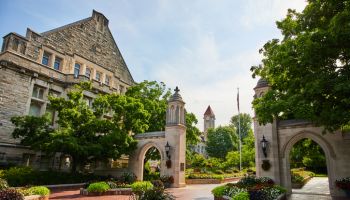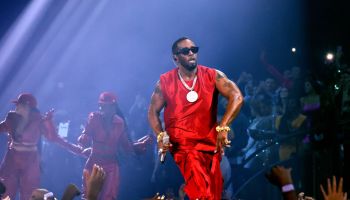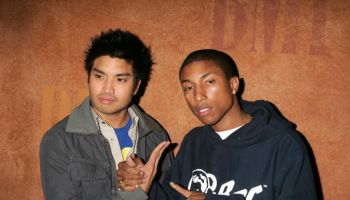President Barack Obama purposefully placed a bronze bust of Dr. Martin Luther King Jr. in the Oval Office to remind him of King’s non-violent movement for racial equality and social justice.
On Wednesday, 50 years after King stood on the steps of the Lincoln Memorial and delivered his soul-stirring “I Have a Dream” speech during the historic March on Washington, Obama, the nation’s first black president, took his place on those same granite steps and shared his observations from long ago autumns and his vision for tomorrow’s leaders.
“Because they kept marching, America changed,” said Obama, who was only two years old when King addressed a crowd of 250,000 in 1963. “Because they marched, the civil rights law was passed. Because they marched, a voting rights law was signed. Because they marched, city councils changed and state legislatures changed and Congress changed and, yes, eventually, the White House changed.”
Obama didn’t ascend to the White House through the traditional civil rights movement – and he didn’t have to.
A student of history, Obama understands the significance of the civil rights struggle and the African American experience in this republic from an intellectual perspective; and on a personal note, the president sympathizes with the myriad of challenges facing black men across the country and he seems especially torn when discussing the sobering statistics of how many black children in America are mired in poverty. Obama seems to grasp these complex issues of race because he has experienced the sting of racism himself and he listens to those who want to eradicate racism and live in a more harmonious society.
“Yes, there have been examples of success within black America that would have been unimaginable a half-century ago,” the president said at the Lincoln Memorial. “But as has already been noted, black unemployment has remained almost twice as high as white employment… The gap in wealth between races has not lessened, it’s grown. And so as we mark this anniversary, we must remind ourselves that the measure of progress for those who marched 50 years ago was not merely how many blacks had joined the ranks of millionaires; it was whether this country would admit all people who were willing to work hard, regardless of race, into the ranks of a middle-class life.”
On Tuesday, at the White House, I watched First Lady Michelle Obama tell a group of black grade school students that she and the president often ask their daughters – Sasha and Malia – these two profound questions: How are you all going to continue what civil rights leaders started? What will be your contribution to America?
It was an interesting acknowledgement by the first lady that offered a glimpse into an overarching concept: This philosophy of community activism, public service and becoming an agent for social change are driving forces within the Obama family and these questions, perhaps asked around the White House dinner table, help shape Obama’s mission for leading this nation and serves as a rallying call for the next generation. But it also comes at a time of paradox: While Obama enjoyed huge support from white voters, racism towards African Americans still permeates our society.
As in 1963, a majority African Americans now say they believe whites have the advantage in the job market, according to a new Gallup poll released Wednesday. The results, released on the 50th anniversary of the March on Washington, indicated 60 percent of blacks said they thought whites have better chances than blacks to get jobs while 39 percent said they thought blacks and whites have equal opportunities. Gallup said blacks have felt disadvantaged versus whites in terms of job hiring in all but a few instances over the last 50 years.
Earlier this week, Obama met with African American faith leaders at the White House for the 50th Anniversary of the March on Washington for Jobs and Freedom and he talked about how civil rights and equality are closely tied to voting rights and closing the gap on education, unemployment, poverty, and access to health care.
Rev. Al Sharpton was part of the faith-based coalition that met with Obama at the White House this week. Sharpton is no stranger to 1600 Pennsylvania Avenue. Since Obama took office in 2009, Sharpton has met with Obama on several occasions and Obama, it appears to me, values Sharpton’s views on race, diversity, and the high rate of unemployment among African Americans.
That Obama embraces Sharpton is noteworthy: The president is signaling to the nation that he is willing to address issues of concerns to black Americans – issues that Sharpton has been confronting for decades through grass-roots activism and a huge following in the black community. Sharpton, the only black man to host his own primetime television show on a major network – MSNBC — is perhaps the most well-known black leader in America – and he is also well-known at the White House.
COMMENTARY: 50 Years in the Making: Obama Honors King During Historic Commemoration was originally published on blackamericaweb.com















